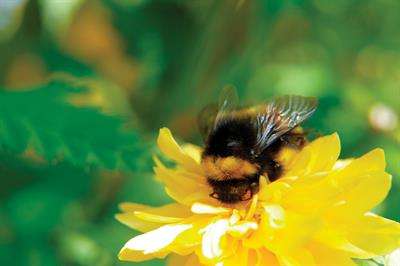Credit: Royal Holloway, University of London
Research from the School of Biological Sciences at Royal Holloway has found that being smart does not necessarily mean you are bringing home the most bacon, if you are a bumble bee at least.
Scientists at Royal Holloway, Plant & Food Research, and the University of Guelph have been studying how the learning ability of bumblebees influences their foraging performance and contribution to the colony.
What they found was that fast-learning bumble bees had a much shorter foraging lifespan than their slow-learning co-workers.
They also found that the fast-learning bumblebees collected food at rates similar rates to the slower-learning bees.
Explaining the unexpected
"Our results are surprising, because we typically associate enhanced learning performance and cognitive ability with improved fitness, because it is considered beneficial to the survival of an individual or group," says Royal Holloway graduate and Plant & Food Research scientist Dr Lisa Evans.
"This study provides the first evidence of a learning-associated cost in the wild."
The researchers evaluated the visual learning performance of 85 individual foraging bumble bees across five different colonies – subjecting them to an ecologically realistic colour and reward association task in the laboratory and then monitoring their performance in the wild using radio frequency identification tagging technology.
Observers were also on hand to monitor the quantity of nectar and pollen brought back to the nests.
The results reveal that slower learning bumble bees collected more resources for the colony over the course of their foraging career.
"This is particularly interesting because we know that learning is really important for bees. They learn which flowers provide the most rewards, when and where to find them – often in habitats containing dozens of flower species," says Professor Nigel Raine, Visiting Professor at Royal Holloway.
Being brainy is hard work
According to the researchers, the shorter foraging careers of the fast-learning bumble bees may be due to costs associated with their higher cognitive functioning.
"Neural tissue is metabolically expensive to produce and maintain. Foraging is energy demanding, but so is learning. This may explain the significantly shorter foraging lifespan of fast-learning bumble bees," says Dr Evans.
The findings go some way to support research into the conservation of pollinators that assist with the production of commercial crops. Determining how pollinators are adapted to their environment can provide insights into aspects that are important for colony success, which contributes to habitat and pollinator conservation.
Provided by Royal Holloway, University of London























